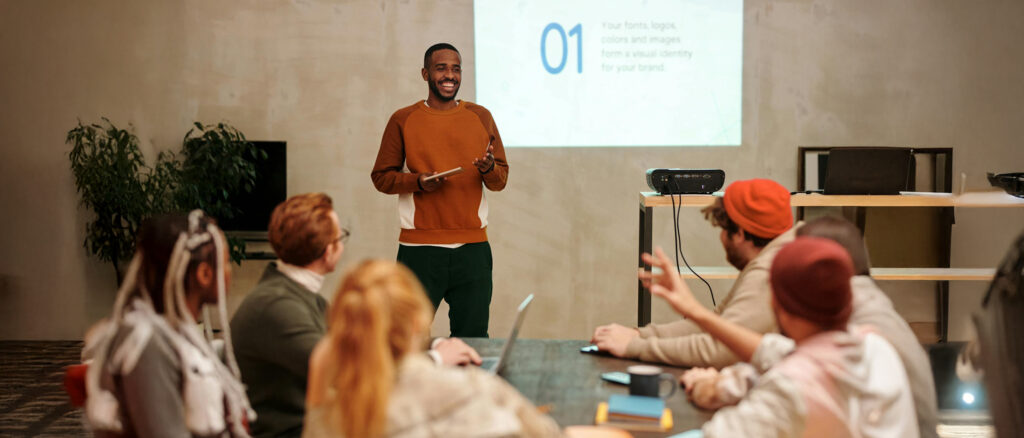Why greenwashing is bad for the planet – and how to avoid it
Brands keen to show their environmental credentials are falling foul in their advertising. See how to avoid being charged with greenwash.
Customers are fed up with companies saying one thing and then discovering that their practices are very different at the sharp end.
From the first inklings of climate change there has been vociferous disagreement on all aspects of the science and remedies, with claims and counter claims making the truth hard to find. But what exactly do we mean by ‘greenwashing’ and how can you avoid it?
With ambitious government targets to help us avoid climate change and customers ready to vote with their feet and their wallets to back companies doing the right thing, many brands want to put their environmental and social responsibility credentials on show. But customers are fed up with companies saying one thing and then discovering that their practices are very different at the sharp end. Or that they are making grandiose statements which can’t be backed up with evidence.
Activists and canny consumers have wised up to greenwashing and are willing to apply pressure, calling out well-known brands publicly both for their actions and their claims. In parallel, regulators such as the Advertising Standards Authority are tightening up and clarifying their rules to make it clear what is and isn’t acceptable.
Businesses need to be very careful, because even brands that some might consider leading in the field have found themselves at the wrong end of the optics or a judgment on their claims – and have found that nuances matter. For example, it’s very hard to forget the press conference where footballer Ronaldo pointedly moved sponsor Coca-Cola’s bottle out of the way. Let’s have a look at some of the rulings in more detail to see where leading brands fell foul.
Innocent drinks
26 people, including one who identified as being from pressure group Plastics Rebellion, complained about a ‘Little Drinks, Big Dreams’ TV ad from Innocent which encouraged people to reduce, re-use and recycle instead of messing up the planet. The complaints focussed on the fact that Innocent’s drinks were single-use plastic, so the ad exaggerated the total environmental benefit of the products and was therefore misleading.
Innocent argued that the ad didn’t make any specific claims and that as a ‘Certified B Corp’ company they were able to ask others to join them on the journey to work towards a healthier planet.
To show its environmental credentials, Innocent outlined their drive to sustainably source 100% of their ingredients, their plans to make every bottle recyclable, and to become carbon neutral by 2030. They also believed their references to dreams in the ad made it clear it was aspirational rather than a specific claim about now.
The ruling
The ASA upheld the claim saying, “the ads implied that purchasing Innocent products was a choice which would have a positive environmental impact when that was not the case… we concluded that the ads were misleading.” Essentially the complainants won their case – because environmental claims had to be made on the full lifecycle of the product and it was misleading to suggest that purchasing single-use plastic can save the planet.
Read the ASA’s ruling on Innocent
Ryanair
Ryanair in TV, radio and print ads in 2019 was claiming to be a “low CO2 emissions” airline. Complainants to the ASA argued that by their very nature airlines didn’t have low emissions. Ryanair argued that they measured CO2 emissions based on grams of CO2 per passenger-kilometre. They said that compared with the four other major European airlines mentioned in some the ads, that Ryanair performed strongest, arguing that they had newer aircraft and fewer empty seats which resulted in lower-than-average CO2 emissions. They backed their claim up with 2011 data from the Airline Efficiency Rankings published by Brighter Planet, a leading provider of carbon and energy calculations, which showed Ryanair performed better than 19 other airlines on five parameters.
The ruling
The ASA upheld the complaint, ruling that the basis of the claims had not been made clear in the ads and that the evidence provided was insufficient to demonstrate that Ryanair was the lowest carbon-emitting airline. This was partly because the data was old and had little value in 2019, and partly because it wasn’t clear what was being compared with what.
Read the ASA’s ruling on Ryanair
Alpro
Some ads on the side of a bus had statements that included ‘NEXT STOP. YOUR RECIPE TO A HEALTHIER PLANET’ and on the opposite side stated, ‘GOOD FOR THE PLANET’ and ‘GOOD FOR YOU’ alongside images of Alpro products for oat, almond, and plain plant-based milks.
Someone who believed that commercial almond farming caused environmental damage challenged whether the claim “GOOD FOR THE PLANET” was misleading and complained to the ASA, wanting to know if the claim could be substantiated.
Alpro provided several studies to show that plant milks had a lower environmental impact than cow’s milk. It also argued that the almonds from Europe were cultivated in a sustainable way which minimised water use and protected biodiversity and pollinating insects.
The ruling
The ASA felt there was not enough context in the ad to support the claim ‘GOOD FOR THE PLANET’ and that there was more than one way to interpret the claim as to whether they offered a positive net benefit or if they were just better than cow’s milk for the planet. The analysis used to support the oat drink didn’t assess the full environmental impact across the lifetime of the product, although they did for the other two products, so it wasn’t clear what the basis of the claim ‘GOOD FOR THE PLANET’ was. They also found that although the almonds used didn’t come from areas where almond growing had a negative environmental impact, the unqualified claims could be misleading because significant information had been left out.
They found that the claim “100% RECYCLED” was misleading.
Lipton Ice Tea
A poster for Lipton Ice Tea on a bus shelter in 2021 had a headline which stated, “DELICIOUSLY REFRESHING, 100% RECYCLED*”. The asterisk linked to small text at the bottom of the poster that stated, “Bottle made from recycled plastic, excludes cap and label”. The ad had shots of two Lipton Ice Tea bottles, with a recycling logo and the text “I’M 100% RECYCLED PLASTIC” visible.
Someone complained that the claim “100% recycled” was misleading because the whole bottle wasn’t made from recycled plastic. Pepsi Lipton argued that the claim was qualified by the asterisk. Although they accepted the text was small and could be overlooked, they felt it was clear that the claim applied only to the bottle and not to the cap and label. They said that consumers understood that caps and labels were not generally made of recycled materials but just in case some customers thought it might apply to the whole thing, they had qualified the claim.
The ruling
The ASA thought the wording excluding the cap and label was small and could be overlooked, and that even if it had been spotted the overall impression was that the whole bottle had been made from 100% recycled materials, so the qualification was insufficient to counter this. They found that the claim “100% RECYCLED” was misleading.
Tips for avoiding greenwashing:
- Make specific, evidence based claims about your environmental credentials
- Avoid making broad-brush environmental claims unless you can justify them fully
- Make it clear what you are comparing
- Claims must be based on the whole product lifecycle unless clearly stated – and any comparisons must be on the same basis
- Make sure any data you rely on is up to date
- Don’t suggest products are more eco-friendly than they are
- Avoid using to need small print
If you’d like to talk to us about a business challenge or campaign, please get in touch

Sticky



